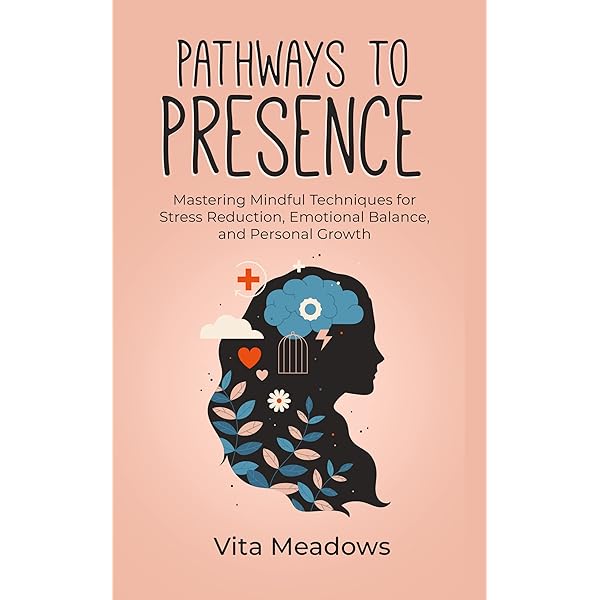
Harmony Within: Techniques for Achieving Mental Balance
Maintaining mental balance in today’s fast-paced world is a crucial aspect of overall well-being. The demands of daily life can often lead to stress and overwhelm, making it essential to incorporate effective techniques for mental equilibrium. Let’s explore various strategies to achieve and sustain harmony within the mind.
Mindfulness Meditation: A Calming Foundation
Mindfulness meditation serves as a cornerstone for achieving mental balance. By focusing on the present moment and cultivating awareness without judgment, individuals can experience a sense of calm and clarity. Regular mindfulness practice has been linked to reduced stress, improved focus, and enhanced emotional well-being.
Breathing Exercises: Anchoring the Mind
Conscious control of breath is a powerful tool for stabilizing the mind. Deep breathing exercises, such as diaphragmatic breathing or box breathing, can activate the body’s relaxation response. These techniques help regulate the nervous system, reduce anxiety, and promote a state of mental balance. Incorporating these exercises into daily routines offers a practical way to manage stress.
Emotional Regulation: Nurturing Positive Feelings
Emotional regulation involves acknowledging and understanding one’s emotions while actively working to cultivate positive feelings. Techniques such as gratitude journaling, positive affirmations, and engaging in activities that bring joy contribute to emotional well-being. By fostering a positive emotional state, individuals can enhance mental balance and resilience.
Mind-Body Practices: Integrating Movement and Mindfulness
Mind-body practices, such as yoga and tai chi, combine physical movement with mindfulness. These holistic approaches not only promote flexibility and strength but also encourage a deep connection between the body and mind. Regular engagement in mind-body practices can have a profound impact on mental balance by fostering a harmonious relationship between physical and mental well-being.
Cognitive Behavioral Therapy (CBT): Restructuring Thought Patterns
Cognitive Behavioral Therapy is a therapeutic approach that focuses on identifying and restructuring negative thought patterns. By challenging and changing distorted cognitions, individuals can develop healthier perspectives and coping mechanisms. CBT is a valuable tool for promoting mental balance and resilience in the face of life’s challenges.
Digital Detox: Unplugging for Mental Clarity
Constant exposure to digital devices can contribute to mental fatigue and overwhelm. Taking intentional breaks from screens, known as a digital detox, allows the mind to rest and reset. Engaging in activities like nature walks, reading physical books, or simply spending quality time away from screens can contribute to mental clarity and balance.
Mindful Eating: Nourishing the Body and Mind
The relationship between nutrition and mental health is significant. Mindful eating involves paying attention to the sensory experience of eating and being present with each bite. Choosing nutrient-dense foods and savoring meals mindfully not only supports physical health but also contributes to mental balance by fostering a mindful approach to nourishment.
Time Management: Creating Space for Mental Well-being
Effective time management is crucial for maintaining mental balance in a busy world. Prioritizing tasks, setting realistic goals, and scheduling breaks contribute to a sense of control and reduce feelings of overwhelm. Creating a balanced daily routine allows for both productivity and moments of rest, supporting overall mental well-being.
Social Connections: Building a Supportive Network
Human connections play a vital role in mental balance. Cultivating supportive relationships and maintaining social connections provide avenues for sharing experiences, seeking advice, and receiving emotional support. Strong social ties contribute to a sense of belonging and positively impact mental health.
Holistic Self-Care: A Comprehensive Approach
Achieving and sustaining mental balance requires a holistic approach to self-care. By integrating a combination of mindfulness practices, emotional well-being strategies, and lifestyle adjustments, individuals can create a comprehensive self-care routine. This approach addresses mental health from various angles, promoting a harmonious and balanced state of mind.
For more insights on Mental Balance Techniques, visit dealstr.net for additional resources and guidance.
In conclusion, the pursuit of mental balance involves a multifaceted approach that encompasses mindfulness, emotional regulation, and lifestyle choices. By incorporating these techniques into daily life, individuals can foster a sense of harmony within the mind, leading to improved overall well-being.
